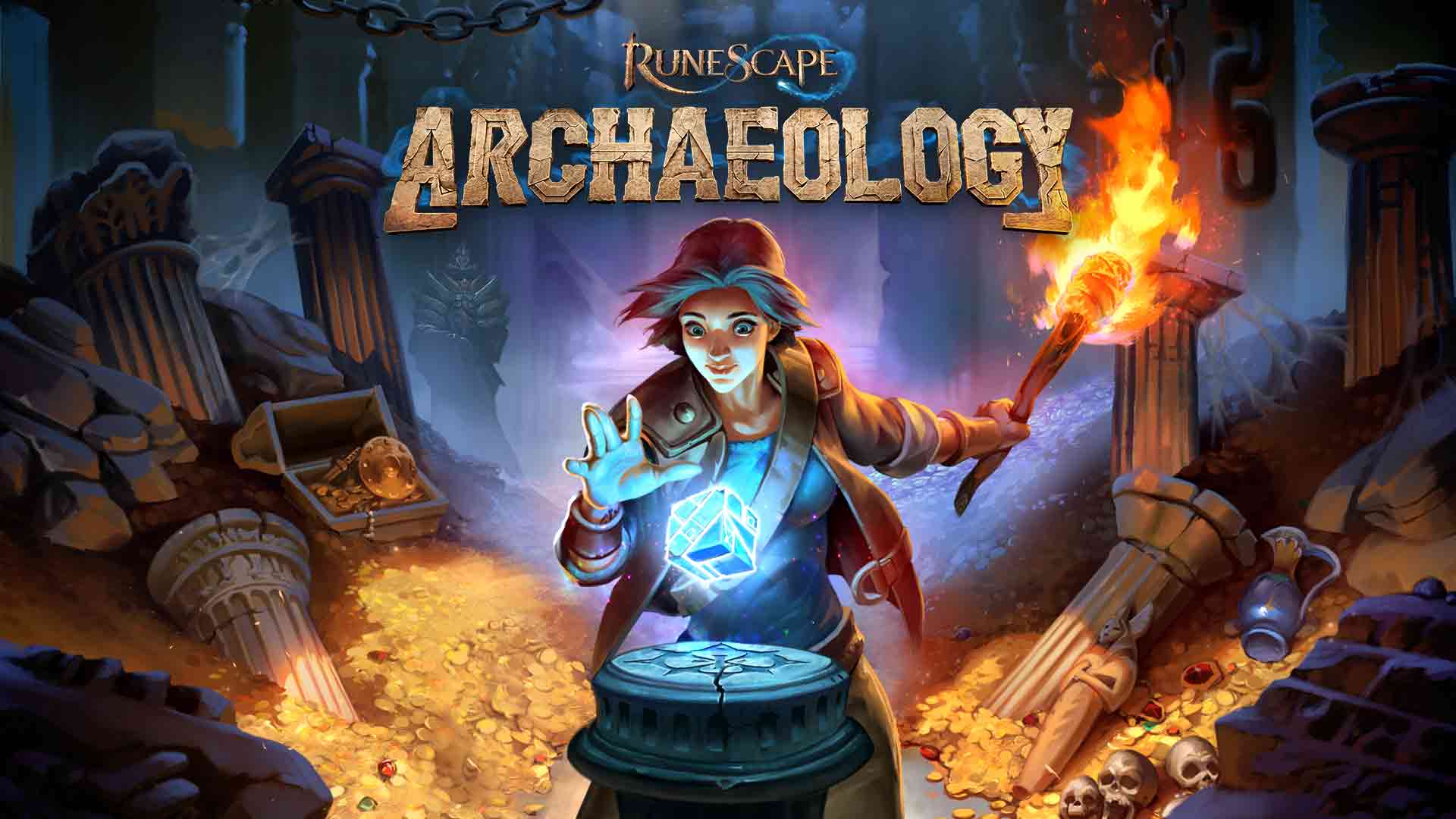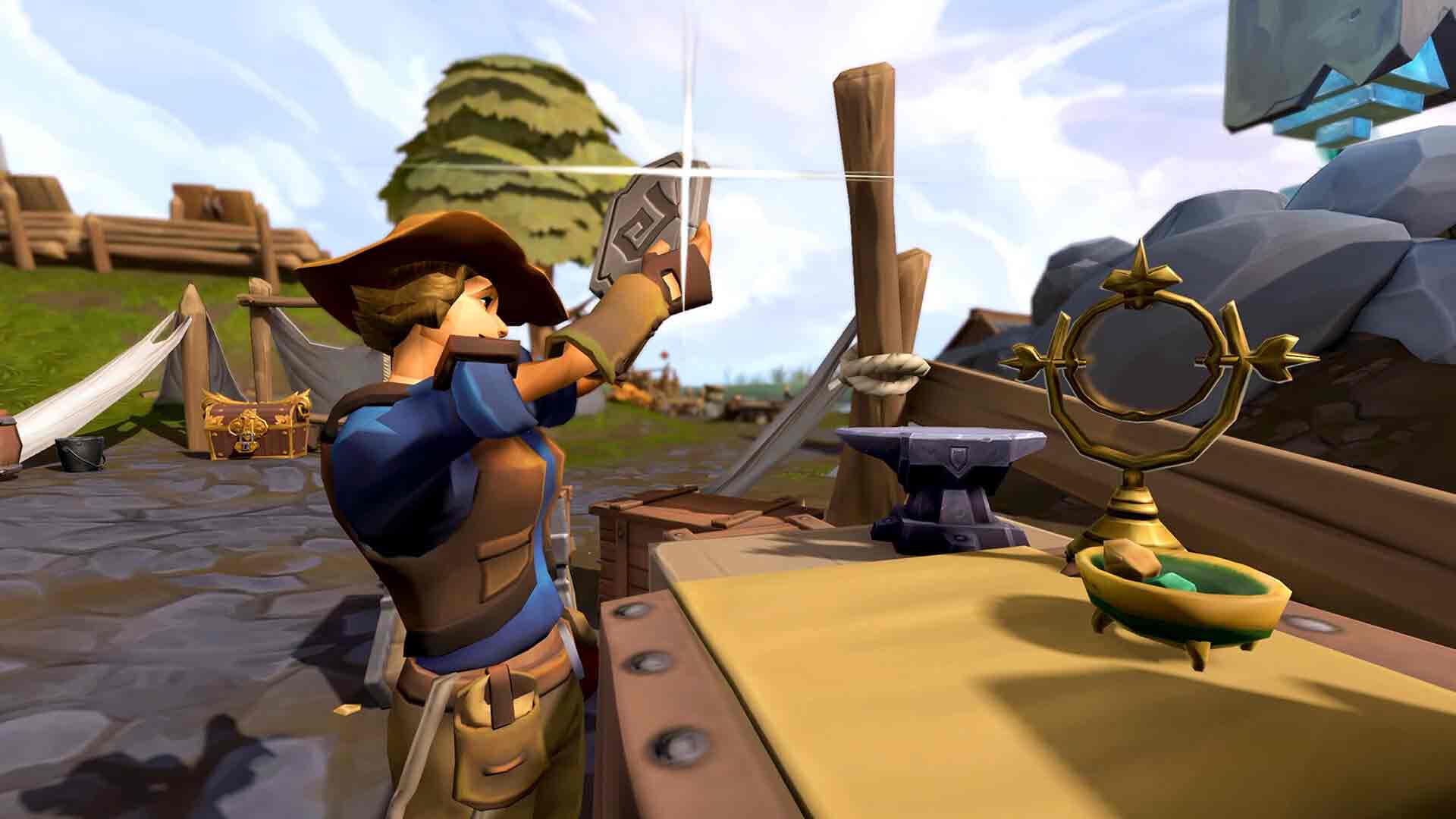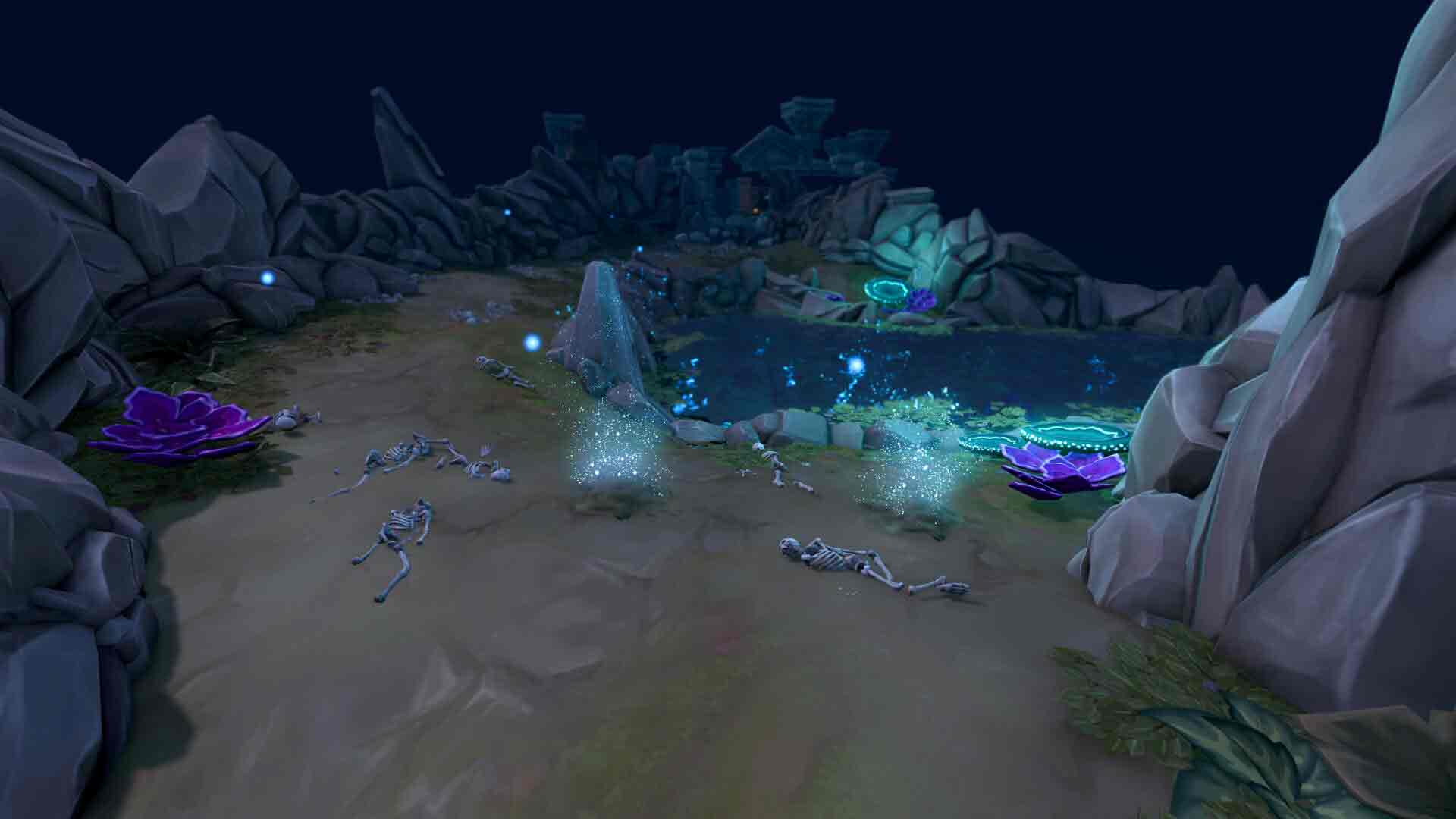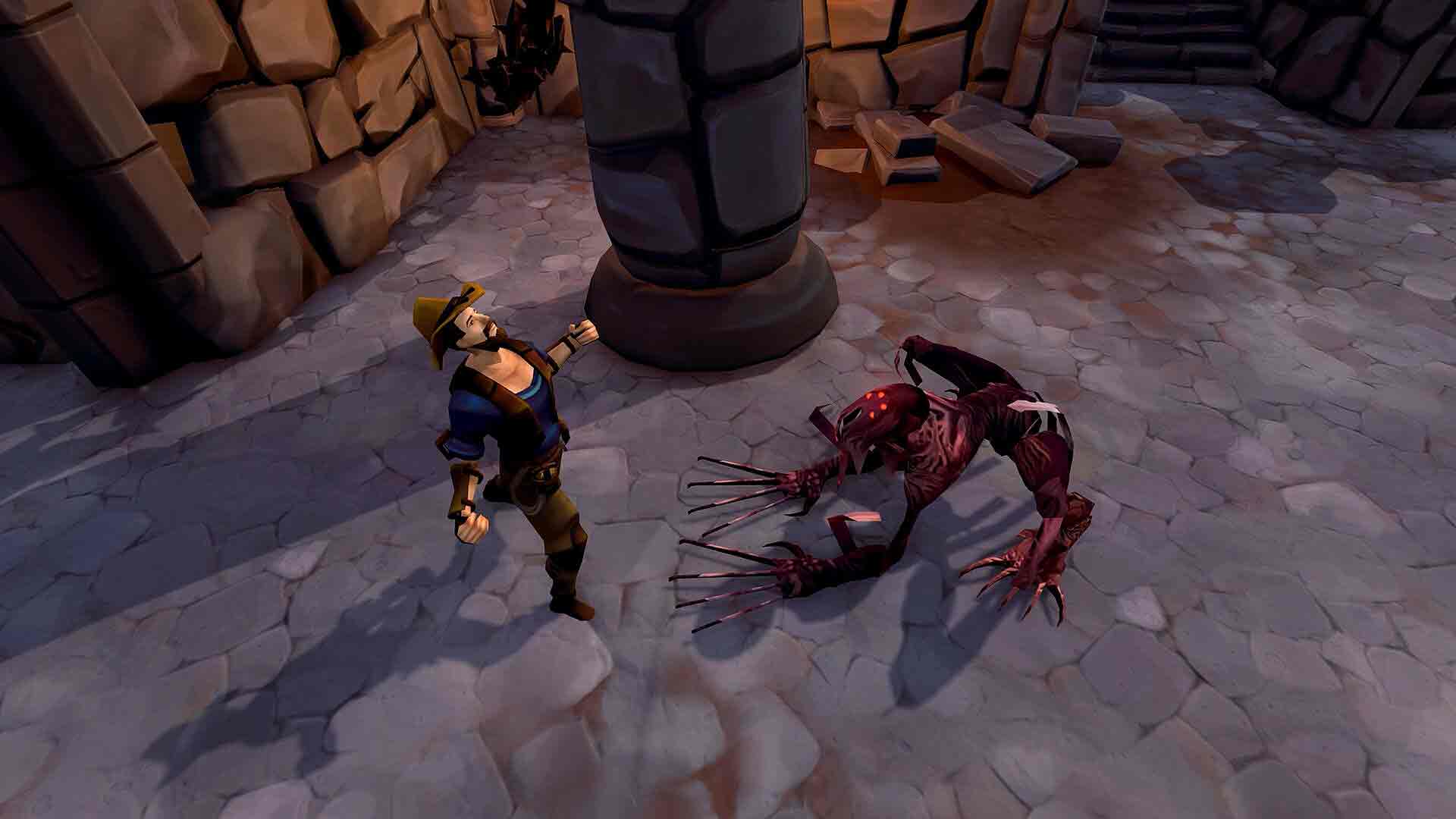RuneScape Archaeology Interview
Interview with Dave Osborne (Lead Designer) & Ryan Philpott (Senior Content Developer) at Jagex
For phone based interviews we try to present the conversation replies as close to verbatim as possible.
To start things off, could you briefly describe the Archaeology update for those that might not be familiar with it?
Ryan Philpott (RP): Archaeology is the latest skill added to RuneScape, this makes it skill number 28. It has you out in the field as a player gathering resources and trying to discover artifacts. Archaeology at its core is a gathering skill. It’s similar to your fishing, mining. When you’re out in the field you find excavation nodes which you interact with and make these discoveries. When you discover an artifact you can take it away and restore it to its former glory. Then as a player you have a decision o make.
What do you want to do with this artifact? Do you want to give it away to a collector, NPCs that collect these items which in return will reward you. Or do you want to hold onto it and find somewhere deep in those dig sites where you found it where it may have a use. Ultimately this is the core loop of the skill, you’ll be continuing to do this through all levels. As you get higher, level up within the skill you’ll get access to more areas in the dig site.
Where you discover stories, what we’re calling mysteries which are mini quests that happen within the dig sites. They often reward in their own right as well as story rewards. As you’re exploring these dig sites you’ll be able uncover things called relics. Relics is essentially a system that allows you to have passive buffs on the player. These Relics are essentially powerful objects from the past that you have your hands on and you essential harness this ancient power.

What would you say is the core of this expansion, or well the aspect that will impact the overall game the most?
Dave Osborne (DO): Obviously training the skill is what RuneScape is. The skill itself, Relics will apply buffs to elements outside of Archaeology. So lots of players will be doing little shopping lists of what they want and working out which ones they want to activate as only so many can be used at one point. They will probably be the things that attract the players the most.
This release brings the 28th skill to RuneScape, could you tell us about the decision behind picking Archaeology as the latest skill and how players will level it up?
DO: I think, why Archaeology? It doesn’t sound particularly exciting, but when we started looking at it through the lens of ok, what would a RuneScape version of Archaeology be? What would a fantastical, magic oriented version of Archaeology be? That’s when it started getting really fun for us. Digging in floating citadels, essentially digging up.
Digging through the Circles of Hell, goblin tunnels. It was kind of an interpretation through RuneScape, once we started seeing it through that lens it became really exciting. We did a lot of survey work on this, you see the appreciation jumped as opposed to just saying the word Archaeology. Equally mechanically there’s so much we can do with it, we can offer so many artifacts, delve into our storyline more.

What’s the process behind performing Archaeology, and where exactly can players head to find some hidden secrets of the past?
RP: We explained the core loop prior. If you were to login on skill release, a player heads to the dig site. What we’ve now called the Archaeology Guild. They can take in the tutorial for the skill and it will explain the rough idea of it will unfold. We have five dig sites spread out across RuneScape’s main land.
There are at different corners of the world, a player is able to go to these dig sites and start training by exacting. As they level up they’ll be able to progress through this site. As you increase in level you get access to new sites. The first site Kharid-et is up to level five, as you progress the next is the Infernal Source for up to level 20 and the other sites unlock different levels as well.
Excavating is also an element of this skill, how does this factor into the work of Archaeology?
RP: As mentioned before, the way this works is that you’re essentially out at a dig site. You can interact with these nodes, similar with mining you’ll use a “Mattock” which is the archaeology tool. You’ll be finding materials, these materials are required to restore any artifacts that you discover. When you make a discovery you’ll be able to take that artifact away and restore it. The excavation loop is essentially collecting these materials and these artifacts.

With all this exploration and discovery, I imagine some loot will be found. What sort of items, knowledge and hidden secrets will players come across while performing this skill?
DO: A couple of things, Ancient Invention and Ancient Summoning. So we already have Invention of Summoning in game. Like the library of Alexandria, knowledge lost over time. When players are excavating in Stormguard they’ll be able to uncover the knowledge to hunt these elements and skills. Ancient Invention is the ability to make these nodes.
If you know RuneScape, then you know invention. Players can make perks on their weapons, little bumps that help on weapons, armors and tools. We previously only have given them five spots to play around with. With ancient gizmos they can have nine slots, more things to work on. More combinations to unlock there, lots of other stuff. Then we have Ancient Summoning.
It’s about binding demons, previously you were pouch making in summoning. You are travelling to mobs in the game, defeating them and then in their dying throes having them sign contracts to bind their souls. As you are on the flip of the narrative trope of selling your soul to the demon. Binding souls to us, now they’ll fight creatures for you. Hopefully that will be a cool moment for lots of players that know these creatures and now get to fight with them.
I understand this skill will impact the overall narrative, and dive into the lore of the game further. Could you tell us a bit about the setup for this and how it unfolds as you work on discovering the secrets of the past?
DO: Just yesterday (interview was conducted March 26th for context) we launched an event that saw one of our gods Zaros interacting with a monolith at a dig site. Players coming into the game see this, weren’t expecting it. A nice surprise. That really is kicking off the story arc that is going to go through Archaeology and onto the Elder God Wars Dungeon.
One of the updates we have for the end of the year. The Elder God Wars Dungeon is where the Titans that created this world have come together to fight for something. We’re being a little bit cagey about what that is. This is the starting pistol that gets that narrative going. Archaeology takes a little bit further and also has individual little stories in it.
Each of the dig sites affects the story to be told. Going in there finding characters and what got to them at this point. For example Everlight was once a light house that as a home for a race of angel creatures. Find out what happened to them, why they’re not there anymore. So it’s a mystery to be told and you’ll find out once you’ve completed the entirety of that story. Pocket stories in the individual dig sites and an overall story that propels the narrative forward.

When working on this content, were there any main inspirations for it and was any interesting research done in preparation?
DO: We were all swapping movies, stuff on Archaeology. Stuff you can’t avoid like Indiana Jones, Tomb Raiders and the Mummies. There’s also a lot of real world inspiration and architecture that we’ve used. We’ve always tried our best to flip those on their heads a little bit and not necessarily do what players expect. I think you go to Stormguard and see we’ve played with familiar tropes, some new stuff there.
What part of Archaeology do you feel will surprise players the most?
DO: We’re also running this tight rope as players know a lot about Archaeology. We’ve done a lot of previews about it and there are some things we’ve kept in our back pocket. We have not revealed that information. Stormguard Citadel is probably the biggest surprise. There are means of navigation, exploring that are very much a surprise. A lot of Easter Eggs as well.
RP: I reckon as well that there is quite a big surprise in some of these dig sites when you progress through as you unlock story and figure out what’s going on. I think the bombshell at the end of some of these is going to be a surprise to some players. Those that are more lore adept will be surprised. That’s going to be super interesting to see, there’s quite a few of those with there being five dig sites. I think there are some interesting stories there that will be a surprise.
Lastly I would like to leave a spot for you to say something or go over anything I might have missed during the interview?
RP: Explain that the skill is ultimately designed to be for everyone. It’s available to new players if you just started playing RuneScape you’ll be able to come in and just try archaeology if you want to. We’ve built it in such a way that as a new player coming into this you’ll be able to follow the story with the small bits that we give you without any complications.
As well as if you’re an active player that’s been playing for a long time. With the new bits of lore you’ll be getting you’ll be able to piece those pieces of the puzzle together and figure out this quest you did before. Something you found out there links to this. I just think it’s going to be an amazing skill and can’t wait to release it and get to playing it myself.
DO: I would like to say it’s a very social skill. You got friends playing RuneScape, it’s really worth playing together with other players. It’s all communal, play through the same content and looking for materials you probably have. We’re talking about playing Animal Crossing, how we’re trying to swap things and stuff like. It has a similar feeling.
View our Interviews Hub
View our RuneScape Hub
Read our RuneScape Menaphos Interview

 Xbox
Xbox Playstation
Playstation Nintendo
Nintendo PC
PC Mobile
Mobile Stadia
Stadia












